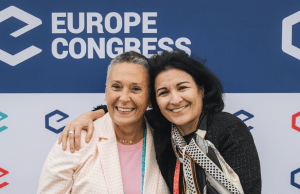About 350 years ago, Henry Oldenburg thought of a new business idea – academic publishing. He was the secretary of the Royal Society, and negotiated the right to keep any profits he made publishing the Philosophical Transactions of the Royal Society, the first publication devoted exclusively to science. Unfortunately for Oldenburg, the journal was not a financial success in his lifetime.
Since then, at least two major changes have taken place. First, academic publishing has become a lucrative business. Elsevier, for example, received $3.2 billion (US dollars) in revenue in 2010, with a 36% profit margin. Second, and at odds with the first change, it has become incredibly easy for researchers to publish papers on the Internet so that anyone with a connection can read them, essentially for free. Historically, publishers provided the dissemination of knowledge that researchers could not easily provide on their own. That is no longer the case, and we must reconsider why publishers are still the dominant distributors of articles.
Modern academic publishers own two core values that readers and researchers want: they own the copyrights to essentially all the articles they’ve published, and they own the names – and thus the associated stamp of high quality – associated with their journals. The badge of honor bestowed upon an author in a well-regarded journal such as the Lancet is not just a boost for the ego, but is more importantly a way to get tenure. Thus researchers who want their work to be freely available are willing to, and even obliged to, forego the free availability of their work in favour of their own career.
So publishers continue to own and sell genuine value.
Yet there has been a growing sense of unrest among researchers with the business practices of major publishers. If they provide value, why are researchers unhappy? The problem is that what publishers now sell are things that are primarily created and maintained by researchers themselves. In other words, if academic publishing were a new idea freshly created in the context of modern technology, it’s a fair guess that high-profit publishers would be put out of business by open access alternatives. In that hypothetical world, journals would have to earn their prestige by appealing to authors. Open access journals would be more attractive to the best editors and authors alike, and requiring the transfer of a copyright would be terrible for business.
An alternative perspective is that publishers now seem to have a conflict of interest. They are a business, and they’d like to make money. Their stated mission is to disseminate knowledge. The conflict is that it is now virtually free to disseminate knowledge. Maximising profits is clearly not aligned with maximising availability. To further the breach in trust between authors and publishers, a tone of insincerity has crept into the messaging and behaviour of major publishers. Perhaps the most obvious example of this is Elsevier’s official support for the Research Works Act (RWA), a US bill that would have disallowed requirements that US taxpayer-funded research be made freely available to read. In other words, if the RWA had become a law, it would negate attempts by agencies such as NIH (the National Institutes of Health) from requiring that the work they fund be published without a paywall.
Elsevier’s support for this bill – viewed by many as similar in spirit to ACTA, SOPA, and PIPA – helped lead to the creation of The Cost of Knowledge boycott. The Cost of Knowledge is a site I created based on a suggestion of Timothy Gowers, a well-known Cambridge mathematician. On 21 January, Professor Gowers publicly declared on his blog that he would no longer be working with Elsevier, and asked for others to join him. As a reader of his blog, I volunteered to facilitate a community of international researchers who would voluntarily refrain from working with Elsevier. Within 24 hours, the site was up, and names began pouring in. In less than two months, over 8,000 researchers have pledged to avoid either publishing, reviewing, or editing for any Elsevier journals. This number continues to grow.
About a month after The Cost of Knowledge was created, Elsevier announced they would no longer support RWA. That same day, the congressional sponsors of RWA reported that they would not be taking any further action on RWA, effectively cancelling the bill. ACTA, SOPA, PIPA, and RWA are all pieces of legislation which aim to hinder the rights of individuals for the benefit of big businesses. As technology evolves, companies may interpret a changing market as a threat to be protected against. But it is a mistake to legislate outdated business practices back into relevance. A better long-term attitude is to understand technology and the market as it evolves, and to add value in that setting. Embrace change. Businesses can ask themselves: “If we were starting from scratch, how could we contribute something new and valuable to our field?”
We live in a world where a high-quality open access journal can be effectively run at a cost of $10 per article[1]. In some fields, editorial work, refereeing, and typesetting are all done voluntarily. Authors can create and post an article online, inform their colleagues, and be discovered by search across the world in a split second. The world is changing. I do not expect a large multinational publisher to radically change their practices because Tim Gowers asks them to, or because I ask them to – or even because thousands of prominent researchers ask them to. I expect publishers to change because the world is changing. I can introduce you to 8,000 people who are changing with it.
[1] An efficient journal. Stuart Shieber. 6 March 2012 <http://blogs.law.harvard.edu/pamphlet/2012/03/06/an-efficient-journal/>
Stuart Shieber













